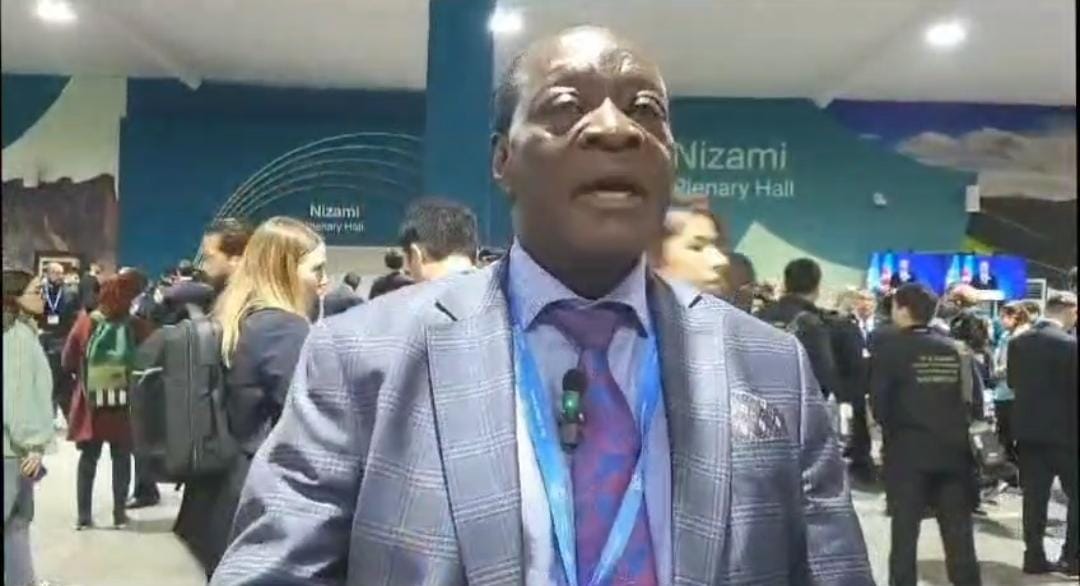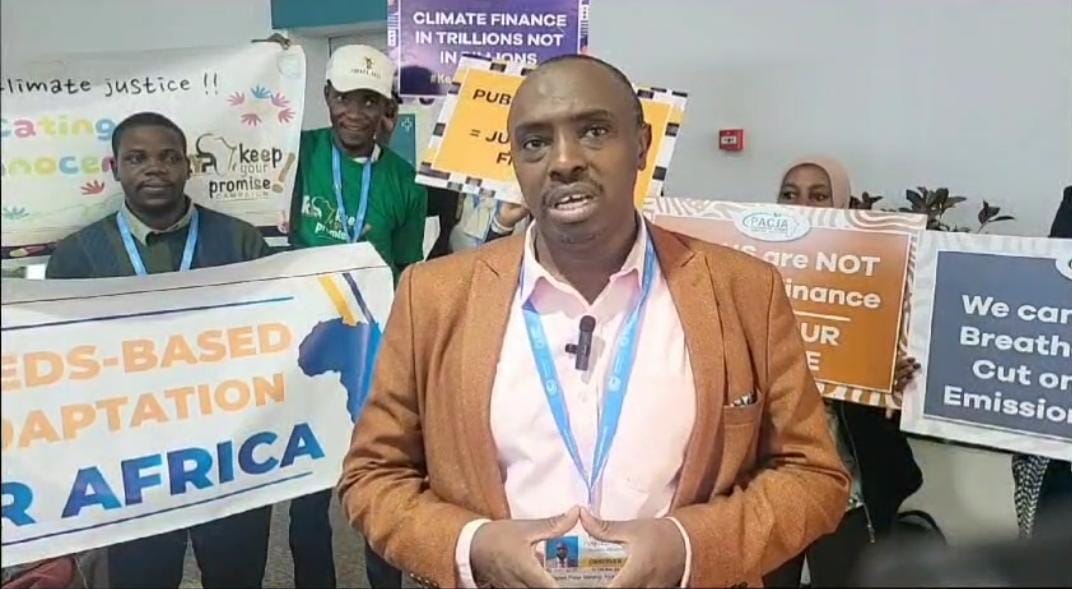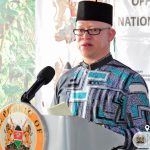The world is likely to miss the global goal of doubling energy efficiency by 2030, a commitment adopted at COP28 in the United Arab Emirates.
This alarming revelation was made by a coalition of countries, businesses, and organizations attending COP29 in Baku, Azerbaijan.
The announcement comes amid growing frustration from climate activists, thousands of whom marched through the streets of Baku, demanding urgent action.
Their key message: rich nations must provide more grants to the Global South, which bears the brunt of climate change impacts despite contributing the least to the crisis.
Speaking at Baku, Charles Mwangi, Head of Programmes at Pan African Climate Justice Alliance (PACJA), compared the current political climate to COP22 in Marrakech (2016), noting the negative impact of leadership changes in the US on global climate efforts.
“The experience that we are getting here in Baku is not different from the feeling that we had in Marrakech in 2016 during COP22, because that is a time that the biggest climate change denier took over power.” Mwangi said.
Adding that: “And that happened when we were in the middle of negotiations and the spirits went down. So we came to Baku again with the same Climate denier in the US has come back to office and now we are going to see us again being pulled out of the party agreement. Now, if US accounts for about 20 or so percent of the greenhouse gases emissions, what are we discussing?They are not on the table.”
Experts at the conference warned that current investments and policies fall short of what is required to meet the 2030 goal, leaving developing nations particularly vulnerable to climate shocks.
The protests in Baku underscored deep-seated grievances over climate funding.
“The parallels between the current climate crisis and the global response to COVID-19 were a recurring theme at COP29. “We saw billions of dollars mobilized overnight to combat a global pandemic. Why can’t we treat climate change with the same urgency?” Mwangi posed a question.
Activists called out wealthy nations for failing to deliver on promises to finance climate adaptation and mitigation in vulnerable regions.
“How many more Africans must die before the world takes real action?” questioned one protest leader, referencing recent extreme weather events devastating communities across the continent.
The activists’ demands mirror sentiments voiced during official proceedings at COP29. Several delegates criticized the reliance on carbon markets, arguing they often divert responsibility from high-emission nations while leaving developing countries to struggle with rising sea levels, desertification, and unpredictable weather patterns.
“Carbon markets are for solutions and they do not work. And they just keep diverting the responsibilities from the Global north to pay to the Global south, who are at the forefront of climate crisis. And we are saying that the Global north needs to pay for the climate fund in forms of grants, not loans.” An activist noted.
Amidst the global critique, local initiatives were celebrated as examples of resilience and innovation.
On his part, Wilbur Otichilo, Chair of the Environment Committee in the Council of Governors highlighted the country’s steps to combat climate change.

“All 47 counties in Kenya now have climate change directorates, and we’ve mandated that 1-2% of local budgets go toward climate change mitigation and adaptation,” he shared.
This proactive approach, however, is not enough without significant international support. “We need grants, not loans, from the Global North,” Otichilo emphasized, echoing the demands of activists and other Global South representatives.
As the conference continues, the pressure is mounting on high-emission nations to recommit to the Paris Agreement goals and honor their financial obligations to the developing world.





